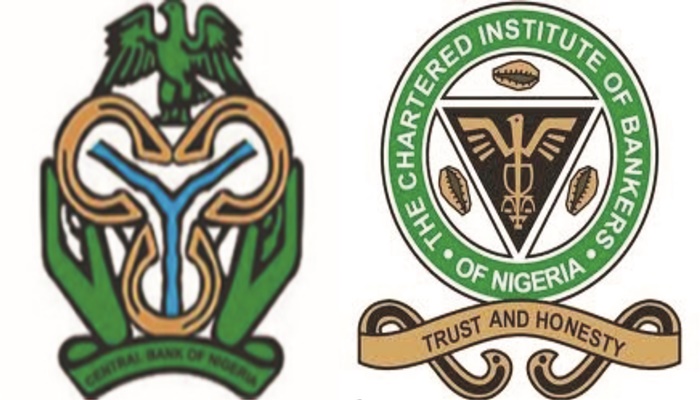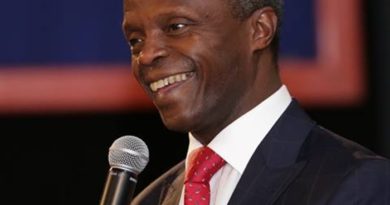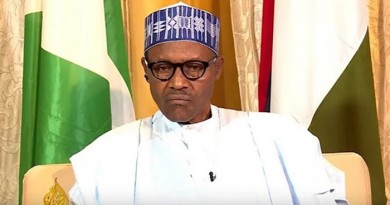Recession: Emefiele, Ajibola outline road map to economic recovery
Niyi Jacobs
Governor, Central Bank of Nigeria (CBN), Mr Godwin Emefiele, has asked the Federal Government to invest in some basic infrastructures like road bridges , airport, railways and information technology as he said this is not only good in terms of immediate job creation, but will act as a catalyst for swift recovery from the current economy recession in the country.
Emefiele , who gave this charge over the weekend at the 2016, Annual Bankers Dinner, which was organized by the Chartered Institute of Banker of Nigeria (CIBN), noted that Nigeria fiscal resources alone would be inadequate to finance this gap created by recession. He stressed that it is critical that monetary and fiscal authorities begin to consider innovative mechanisms and ideas on what to do.
He also said that it is now critical to concentrate on the best efforts on ensuring that fiscal policy is targeted at improving productivity of labour, increasing disposable incomes for workers, and deploying resources to creating an enabling environment for investors adding that there is the need to look at how fiscal policy can help household consumption and business investments.
According to him, “In times like this, there is usually the need for strong policy coordination between the key aspects of economic policymaking space. In Nigeria, this would include fiscal, monetary, exchange, and trade policies, which must be targeted at protecting farmers, companies and industries that are committing resources to support government’s drive to diversify the economy away from oil and fossil fuel”.
More so, the CBN boss also charged the government to pay attention to agriculture and Agribusiness: “Whatever we do to jumpstart growth in Nigeria, we just cannot afford to ignore this sector at all”, he said.
He stressed that agriculture remains the largest employer of labour in Nigeria and contributes about 24.2 per cent of the nation’s GDP. In addition, Emefiele mentioned that good share of the demand for forex today go directly to importing agricultural produce. “So the CBN has both a direct and indirect rationale to ensure that this sector is revived in a significant way”, he noted.
He said that the CBN’s Anchor Borrowers’ Programme, together with other initiatives like the Commercial Agriculture Credit Scheme and NIRSAL, are proving to be successful in several states. ‘”To date, the Bank has committed close to N23 billion in the Anchor Borrowers’ Programme with active participation across 14 states of the federation.
“In Kebbi State, over 78,000 small holder farmers are now cultivating about 100,000 hectares of rice farms. It is expected that over one million metric tonnes of rice will be produced in that state alone this year. When considered against the backdrop that Nigeria consumes about 6.1 million tonnes annually and only produces 2.5 million metric tonnes, this will go a long way to make rice available on our tables, he revealed.
In addition, Emefiele said there were several ways the government can raise additional revenue to finance the increased expenditure that is needed to engender fast and sustainable growth in the economy. “I think we can consider introducing a negligible telecom surcharge to be entirely borne by the initiator of a call. In order to protect the poor and vulnerable amongst us, we could structure it to only take effect after the third minute of talk. And more also, consider introducing minimal property taxes across the country. This not only raises money for the government but also could be a veritable weapon against corruption since it creates a database of who really owns homes in this country”, he noted.
On curbing current inflation, Emefiele said the government must first understand what kind of inflation the country is facing. He explained that many empirical studies have estimated the threshold level at which inflation becomes significantly growth retarding to be 11 per cent for developing countries.
With Nigeria inflation at 18.3 percent, he questioned the judgment of cutting interest rate at this time but underscore that interest rates reflect not just the cost of capital but also the cost of doing business, and so there is the need to also look at interest rates from the perspective of the lender.
“Given that most banks have to individually provide security, power, and other infrastructure, it is not surprising that some of these costs are passed on to customers in the form of high interest rates. Notwithstanding these facts, we will continue to use moral suasion to encourage commercial banks to be more considerate in interest charges on customers”, he added.
He, however, pointed out that the CBN has disbursed about N393 billion in 490 projects under the Commercial Agriculture Credit Scheme and also disbursed N23 billion under the Anchor Borrowers Programme, N79.8billion under the MSME Scheme, and N236.4billion under the Power and Aviation Intervention Fund. Combined, “the schemes have created over 6.7million direct jobs and a lot more indirect jobs”, he said.
Emefiele, therefore, said that apex bank remains committed to do more in the identified crops such as rice, maize, sorghum, tomatoes, cassava, cocoa, cotton, dairy, and groundnut.
Similarly, Professor Segun Ajibola, President/Chairman, CIBN also said that the institution as a major stakeholder in Nigerian. The institution will engage with players in the industry and other allied sectors to support government and regulatory institutions’ efforts at addressing the current lacklustre performance of the economy.




